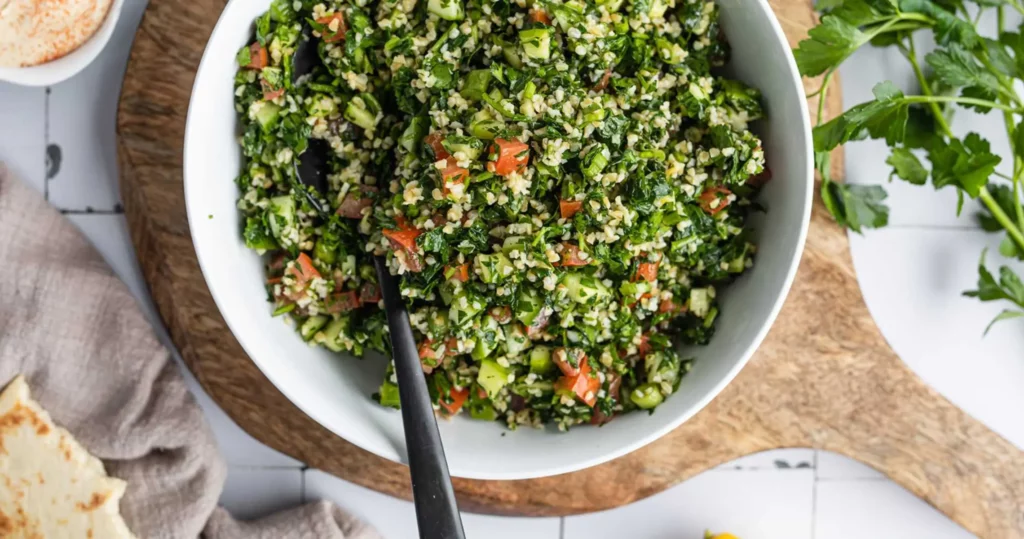Tabouli salad, also known as tabbouleh, is not just a dish; it’s a cultural icon with deep historical roots. Understanding its origins and cultural significance adds layers of appreciation to this beloved Middle Eastern delicacy.
Origins of Tabouli
Tabouli traces its origins to the Eastern Mediterranean region, particularly Lebanon and Syria, where it has been a dietary staple for centuries. The exact origins of Tabouli are somewhat ambiguous, with some attributing its creation to the Lebanese mountain regions, while others argue for its Syrian roots. Regardless of its precise beginnings, Tabouli has become synonymous with Levantine cuisine.
Evolution of the Recipe
Over time, the recipe for Tabouli has evolved, adapting to the availability of ingredients and local preferences. Traditionally, Tabouli was primarily a parsley salad with bulgur wheat, seasoned with lemon juice, olive oil, and spices. However, variations have emerged, with some regions incorporating more tomatoes, onions, or mint, reflecting the diverse culinary landscape of the Middle East.
Cultural Significance
Tabouli holds immense cultural significance in the Middle East, serving as more than just a dish but as a symbol of hospitality, heritage, and communal dining. It often features prominently in celebrations, gatherings, and feasts, signifying abundance and togetherness.
Health Benefits and Nutritional Value
Beyond its cultural significance, Tabouli boasts numerous health benefits. It’s a nutritious dish, packed with vitamins, minerals, and antioxidants. The high fiber content of ingredients like parsley and bulgur wheat promotes digestive health, while olive oil provides heart-healthy fats. Additionally, the fresh vegetables in Tabouli contribute to overall wellness and vitality.
Global Popularity and Influence
In recent decades, Tabouli has transcended its regional origins to become a beloved dish worldwide. Its fresh flavors, vibrant colors, and healthful ingredients have captivated palates across cultures, earning it a place on menus from New York to Tokyo.
Preserving Tradition in a Modern World
Despite its global popularity, Tabouli remains deeply rooted in tradition and heritage. Many families continue to prepare it using recipes passed down through generations, preserving its authenticity and cultural legacy. In an era of globalization and culinary fusion, Tabouli serves as a reminder of the importance of preserving cultural traditions and culinary heritage.
Conclusion
Tabouli salad is more than just a dish; it’s a culinary journey through history, culture, and tradition. From its humble origins in the Middle East to its widespread popularity on the global stage, Tabouli continues to captivate and inspire food enthusiasts around the world. So, the next time you savor a bowl of Tabouli, remember the rich history and cultural significance embodied in every bite.
Learn more :
Innovative Variations of Classic Tabouli: Incorporating Distinctive Ingredients

